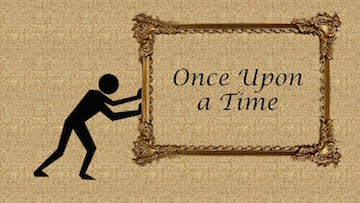The Wine Narrative is Slowly Changing—In a Bad Way
It’s a word that has come to be used more and more over the past decade to describe a given explanation or story concerning one topic or another. Most often you see the term “narrative” used to describe how the media is telling a particular story. For example, “the current narrative is that the Trump team worked with Russian representatives to influence the outcome of the 2016 election.” That’s a narrative. It may or may not be true.
I want to raise a concern about a “narrative” that is developing concerning alcohol vis-a-vis cannabis. More and more I see both alcohol and cannabis linked together as alternative ways of getting high. It’s true that alcohol (including wine) is a means to get “high”. But alcohol (and particularly wine) has also long carried an alternative narrative: a beverage that accompanies food and dining that has a long cultural and social history that is linked to land and agriculture. This latter narrative is very positive. It also has the benefit of being true.
But consider the narrative embedded in this paragraph:
“BUT: DIFFERENT OCCASION HIGHS. Still, these two “high” makers are largely different occasions. For example: for 46% of people who consume both alcohol and cannabis in fully legal states for marijuana, they do not see the two substances as fitting for the same times.”
This is a single paragraph inside a Beer Business Daily story on the intersection of alcohol and cannabis. It’s a good story, but notice that both alcohol and cannabis are categorized as vehicles for getting high. I’ve been seeing alcohol (wine) and cannabis conflated in this way more and more of late where alcohol (including wine) are both described as vehicles for getting high. It used to be that wine in particular was described this way primarily by anti-alcohol or neo-prohibitionist types. It wasn’t a mainstream perspective.
Ask yourself what happens when this “narrative” of wine being nothing more than a vehicle for getting high, no different from cannabis, moves into the mainstream. What happens when consumers and, importantly, policymakers are regularly confronted with this narrative? I know what happens. Wine becomes no more than just another drug, like cannabis, cocaine and opiates.
This is one more reason why the wine industry ought to be working very hard right now to do whatever it can to disassociate its product from cannabis. They are two entirely different things and ought to be portrayed as entirely different things. And here’s what’s going to happen. If the wine industry does not begin to actively disassociate itself and its product from cannabis, the narrative is going to slowly change to the point where wine and cannabis are simply two vehicles for getting high. How does that help the wine industry?


Tom – It’s good insight and the tip of the iceberg. The cannabis industry is positioning themselves as more healthy and less calories than alcohol. Government agencies and studies funded by ant-alcohol agencies are cascading reports about alcohols negative impacts.
The Federal Government quietly removed the part of the dietary guidelines that said moderate consumption of wine was part of a healthy lifestyle. We are doing nothing as an industry to counter bad science and as we learned from Nielsen this week, of current alcohol consumers under 28, two thirds are trying to moderate or abstain from alcohol consumption. The #1 reason? Health.
The narrative for wine is not positive for wine today, and it’s taking a huge toll in consumer consumption patterns. The fight is coming from the beer industry, cannabis industry, spirits industry, the US Government, and anti-alcohol organizations. If we don’t do something within one of our industry organizations such as Wine Institute, to fight back on policy, we are going to have increased restrictions on advertising, marketing, sales and reduced consumer demand. That’s a secular change that will take decades to reverse if we don’t come together on it quickly.
We are experiencing something similar in education. Students don’t make a hard distinction between wine and beer and spirits and cannabis. Granted, they’re not the same thing, but I think we’re seeing a convergence – people who love wine are open to interesting beers and spirits, people who are into craft brews are open to new wines, and so on – and legal cannabis appears to be starting to play a part. The aroma, the flavor, the provenance, the genetics – people talk about cannabis in many of the same ways we talk about wine, so it’s natural they make that natural connection.
Many over the centuries have had a glass of wine or a puff of weed before dinner to sharpen their gustatory senses. It’s one of the reasons all these things exist, to help us make the transition between different states of consciousness, so they do have much in common, at least from the consumer perspective.
I guess what I’m trying to say is – yes it’s new, yes it’s different, yes it’s challenging – but I don’t think we have to be afraid, regardless of the “narrative.”
New? What did you smoke, people? Pour me some!
https://www.australiangeographic.com.au/topics/wildlife/2011/10/animals-getting-high-10-common-drunks/
Not quite cannabis, but there’s talk of CBD- and hemp-infused wine:
https://www.winebusiness.com/?go=getNewsLink&dataId=209096&ref=dnl_link